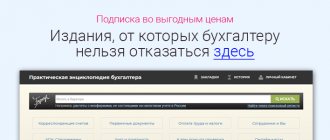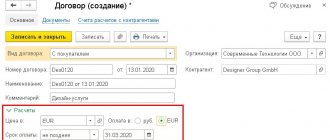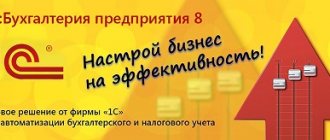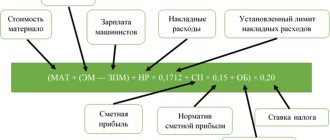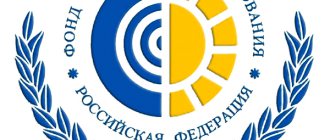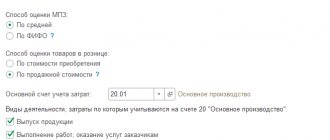What expenses are considered reimbursable?
First, let's figure out exactly what expenses are called reimbursable. It’s not very complicated here: these are expenses that were made in the interests of another person. Reimbursement of costs is most often formalized in contracts for the provision of services, rental or intermediary. Here are examples of the most common cases:
- food expenses;
- medical services;
- insurance;
- transport;
- utilities;
- travel allowances, etc.
ConsultantPlus experts have prepared clarifications on the need to charge VAT when reimbursing expenses included in the contract price; above the contract price; when rebilling expenses under an intermediary agreement. If you don't have access to K+, get it for free on a temporary basis and follow the instructions.
But, of course, the most significant share of all types of reimbursed services are services for the delivery and transportation of goods. Let's look at them in more detail.
How to recover VAT from the budget
There are two options for tax refund: refund before or after the end of the chamber. Each method has differences and nuances, so we will consider both orders.
General VAT refund
The rules are established by Article 176 of the Tax Code of the Russian Federation. They apply to all taxpayers: those selling goods both in Russia and abroad.
To receive a tax refund in the general manner, three conditions must be met:
1. Submit a VAT return to the Federal Tax Service
The total amount of VAT to be refunded is reflected in line 050 of section 1 of the declaration. To receive the tax amount, you must first fill out sections 3–6.
2. Submit an application for VAT refund/credit
You can return the tax to your checking account or offset it against future payments. Submit an application for a refund using the KND form 1150058, and for a credit – using the KND form 1150057.
It is better to submit the application simultaneously with the declaration - this will help to reimburse the tax in an accelerated manner, provided for in paragraphs 7–11 of Art. 176 of the Tax Code of the Russian Federation. If the tax office decides on a refund, but does not receive the application, it will act in the general manner provided for in Art. 78 Tax Code of the Russian Federation.
Keep records of exports and imports in the Kontur.Accounting web service. Simple accounting, payroll and reporting in one service
3. Pass a desk audit of the declaration
According to standard rules, the camera room lasts two months. But it can be either shortened or extended. Extension of a cell to three months is usually associated with found violations of the law. A reduction of the audit to a month can only be obtained by some bona fide taxpayers in relation to declarations that were filed after October 1, 2022 for tax periods after the third quarter of 2022 (letter of the Federal Tax Service dated October 6, 2020 No. ED-20-15/129).
During the cameral, the tax office often requests documents confirming the right to deductions: invoices and UPD, primary documents on registration; confirmation of zero rates, payment documents, contracts, etc.
In addition, tax authorities sometimes request books of purchases and sales, invoices, analytical documents, account cards, etc. Not all taxpayers agree with such requirements, so disputes reach the courts. Judicial practice is still ambiguous. If you are ready to sue the tax authorities, you can try to refuse to submit documents.
The check may or may not succeed:
- If no violations are found, the tax office will decide whether to refund VAT within 7 days.
- If there are violations, taxes will not be refunded immediately. First, the tax office will draw up an audit report and then give it to you. This will take up to 15 business days. You can challenge the act within a month.
The result of the entire procedure will be a tax decision on reimbursement. She can reimburse the entire declared amount, partially reimburse or refuse completely (clause 3 of article 176, clause 1 of article 101 of the Tax Code of the Russian Federation). The tax office will announce the final decision to you within five days.
If you requested a tax refund, the inspectorate will approve it in the absence of arrears and send an order to the treasury to return the money.
VAT refund on request
In this procedure, the tax can be returned immediately while the desk audit is ongoing (Clause 1, Article 176.1 of the Tax Code of the Russian Federation). In this way, companies return both all VAT at once and part of it.
This can be used by:
- Organizations that, over the previous 3 years, have transferred at least 2 billion rubles to the budget for VAT, excise taxes, income tax, and mineral extraction tax.
- Taxpayers with a bank guarantee.
- Taxpayers with a guarantee from a Russian organization.
- Residents of special territories with a guarantee from the management company.
There are additional conditions for each group. For example, not every organization can become a guarantor, but only one that has paid 2 billion rubles in taxes over the previous three years. And the guarantee from the bank from the moment of filing the VAT return must be valid for at least another 10 months.
To apply the application procedure, submit an application in any form along with sureties and guarantees. This must be done within five days after filing the declaration or immediately along with it.
Keep in mind that you will need to take on the responsibility to return the excessively refunded VAT to the budget if the tax office reverses its decision in whole or in part. This can happen if, following an audit, it turns out that you requested a refund for a larger amount than the tax office approved after the audit.
The IRS will refund the tax only if you have no arrears. She will check this for 5 days, and then within another 5 days she will communicate her decision.
If you are refused a tax refund in accordance with Article 176.1 of the Tax Code of the Russian Federation, then you can use the standard rules. In this case, the camera room will continue automatically, and after its completion, the tax office may change its opinion.
What are reimbursable travel expenses?
Let's consider several options related to the delivery of goods.
- The buyer can pick up the goods independently, on a self-pickup basis. For the supplier, this is perhaps the ideal option: he will only need to release the goods from the warehouse directly to the buyer himself or the transport organization hired by him. In this case, the buyer bears all delivery costs personally.
- The supplier can sell his goods at a price that already includes transportation costs. In this case, they will be part of its commercial costs, and the buyer will account for them as part of the purchase price.
- Often the supplier carries out several types of activities - for example, the sale of goods and the provision of transport services. Then it turns out that the buyer purchases each of these services separately - under two different contracts or under a mixed one. In this case, the delivery cost is billed to the buyer in a separate document or is generally highlighted on a separate line.
- And another way is when delivery is organized by the supplier, but not on its own, but with the involvement of a third-party transport company, concluding an agreement with it for the provision of relevant services. However, the cost of delivery is ultimately paid by the buyer of the goods, and not by the supplier, although it is the latter who pays the carrier with funds received from the buyer in the amount of the cost of transport services provided to him. It is these transportation costs that are usually called reimbursable.
VAT compensation under the simplified tax system
Entrepreneurs who use the simplified taxation system - a simplified taxation system - operate without VAT. However, the law specifies cases when it is necessary to use VAT.
When to use VAT
According to paragraph 2 of Art. 346.11 of the Tax Code of the Russian Federation, the simplified taxation system exempts people from paying VAT. However, the Tax Code provides for cases when organizations and individual entrepreneurs using the simplified tax system must pay VAT and maintain an invoice.
Import of goods
In paragraph 2 of Art. 346.11 of the Tax Code of the Russian Federation states that value added tax (VAT) must be paid when importing goods into the territory of the Russian Federation or other territories under its jurisdiction.
The tax payment procedure depends on the selling country:
- If this is Belarus, Armenia, Kazakhstan or Kyrgyzstan, then VAT is paid after the goods are delivered for registration. The tax is calculated on the sum of the cost of the goods and the excise tax if the goods are included in the group of excisable goods.
- If this is a country that is not part of the EAEU, then VAT is paid at customs. Tax is calculated on the amount of the cost of the goods, customs duties and excise taxes.
Invoice with allocated VAT
According to paragraph 5 of Art. 173 of the Tax Code of the Russian Federation, tax is charged when an invoice is issued to the buyer. If, at the request of the buyer or by mistake, an invoice was issued with the specified VAT, the individual entrepreneur or organization will have to pay the tax using the simplified tax system. In this case, the amount of tax payable is equal to the amount indicated on the invoice.
Purchase and rental of state property
In these two cases, the taxpayer using the simplified tax system must pay VAT to the budget. In paragraph 3 of Art. 161 of the Tax Code of the Russian Federation states that when leasing federal and municipal property, as well as property of constituent entities of the Russian Federation, the tax base is the amount of the rent including tax.
The law provides for two transactions with state property:
- When renting, tax is withheld from the rental payment. If the price is specified in the contract including VAT, then a rate of 20/120 must be applied. If VAT is not indicated, then simply 20%.
- When purchasing and subsequent use of government property, the entrepreneur is required to withhold sales tax. However, if certain conditions are met, tax may not be withheld:
- before purchasing the property, it was leased from the buyer for at least two years;
- the buyer has no rent debts, as well as penalties and fines;
- the object is not included in the list of property free from the rights of third parties;
- At the time of concluding the contract, the buyer is an SME - a small or medium-sized enterprise.
Trust property management
According to paragraph 1 of Art. 174.1 of the Tax Code of the Russian Federation, the executor of trust management agreements and simple and investment partnerships is assigned the responsibilities of a taxpayer.
In this case, VAT is paid on sales income, and the taxpayer must mark “D.U.” on the simplified tax system in the invoice in the “Seller” column, which means “trust management”.
Construction contracts for OSNO
When executing a construction contract with companies on OSNO - the main taxation system - the taxpayer must compensate for the costs of VAT. In this case, tax is charged on materials, consumable tools, etc. The taxpayer uses the simplified tax system to compensate for the costs of taxes.
When a company using OSNO purchases goods without VAT from a seller using the simplified tax system, it cannot reimburse the input tax.
VAT compensation
With the help of VAT compensation, a taxpayer who uses the simplified tax system can work with customers on OSNO.
Contractors use VAT to offset the cost of purchasing materials and tools. When drawing up an estimate, VAT is calculated in a mandatory column. The column cannot be hidden or deleted, even if the taxpayer uses the simplified tax system. Those contractors who use the “simplified” must change this column to “VAT compensation under the simplified tax system.”
Errors when drawing up estimates
Incorrectly completed documents in the work scheme “contractor on the simplified tax system → customer on the OSNO” can lead to the following problems:
- The customer risks that the tax paid to the contractor will not be included in the VAT tax deduction.
- For the contractor, the danger lies in reducing the contract price by the amount of VAT, which the tax office can carry out if it decides that the price has been unreasonably increased.
The first mistake that contractors using the simplified tax system encounter when drawing up estimates is the lack of accounting for VAT. In this case, taxpayers include VAT on materials and services as expenses. This leads to the fact that the organization or individual entrepreneur incurs additional losses.
The second mistake is including VAT in the estimate and issuing an invoice. In this case, the contractor under the simplified tax system will pay the tax twice: to suppliers for materials and services and to the budget after completion of the work.
Calculation of VAT compensation
To avoid additional costs, simplified taxation system contractors must adhere to the following interaction scheme between the parties:
The letter of the State Construction Committee of the Russian Federation dated October 6, 2003 No. NZ-6292/10 specifies the procedure for determining the cost of work for organizations using the simplified tax system. This cost must be included in the estimate.
Compensation is calculated using the following formula:
(Mat + (EM – ZPM) + HP × 0.1712 + SP × 0.15 + OB) × 20%
- Mat - materials.
- EM - costs of operating mechanisms.
- ZPM - driver's salary.
- HP - overhead costs.
- SP - estimated profit.
- OB - equipment operating costs.
- 0.1712 is the share of materials in overhead costs.
- 0.15 - the share of materials in the structure of the estimated profit.
- 20% is the VAT rate.
The amount received is taken into account in the estimate in the column “VAT compensation”. The customer must take them into account as part of the total costs.
Entrepreneurs and organizations using the simplified tax system must be able to correctly draw up an invoice and calculate VAT compensation in order to avoid additional costs.
Reimbursement of VAT on transportation from the point of view of tax authorities
Tax authorities and financiers expressed their point of view in a letter from the Ministry of Finance of the Russian Federation dated August 15, 2012 No. 03-07-11/299. What is it about? Financial department specialists point out that invoices, in accordance with paragraph 3 of Article 168 of the Tax Code of the Russian Federation, should be issued only in the case of sales of goods. Next, they consider the case when, in accordance with the terms of the concluded contract, the supplier organizes transportation, and the buyer reimburses him for the transportation costs incurred. At the same time, according to officials, the cost of delivery services should not be indicated in the seller’s invoice for goods supplied.
Then they report that the supplier can also provide transport services to the buyer under commission or agency agreements. In this case, the buyer has the right to deduct VAT on such services on the basis of invoices issued to him by the seller. Please note that in this case, when issuing an invoice, the agent or commission agent who ordered the services for the delivery of goods is required to indicate in it the name of the actual service provider (that is, the carrier), and not his own.
Reasoning in this way, officials come to the conclusion that the buyer cannot deduct VAT on reimbursed transport services, since such invoices, according to paragraph 1 of Article 172 of the Tax Code of the Russian Federation, cannot serve as the basis for a tax deduction.
In other words, financiers, in order to recover VAT, insist on documenting the intermediary relationship between the supplier and the carrier. Consequently, invoices should be drawn up according to the rules established for intermediaries. This means that the supplier of the goods must issue two invoices to the buyer:
- directly on the goods themselves - as a seller;
- for transportation services - as an agent (indicating the name of the actual service provider).
Subsidy after purchase
The subsidy was received after the purchase of goods (work, services) to reimburse expenses incurred, including VAT.
Its amount is also not included in the VAT tax base, since it is not related to payment for goods (work, services) sold by the taxpayer. But VAT, which was accepted for deduction on purchased goods (works, services), will need to be restored.
If the subsidy was received to reimburse expenses incurred for the purchase of goods (work, services) and includes VAT, the subsidy amount is not included in the tax base, and the VAT deduction is restored.
There is an exception. It concerns a targeted subsidy under Government Decree No. 976 of July 2, 2022, related to the prevention of coronavirus.
If a company fulfills the conditions for providing a targeted subsidy under Resolution No. 976 and purchased goods (work, services) for the prevention of coronavirus before receiving it, then the VAT accepted for deduction is allowed not to be restored.
Read in the berator “Practical Encyclopedia of an Accountant”
Deduction and restoration of VAT on goods purchased with targeted subsidies for the prevention of coronavirus
VAT refund on transportation: opinion of the judges
Regarding this situation, the courts believe that the supplier of the goods, who initiates its delivery using the services of a third-party carrier and reimbursement of these expenses by the buyer, is not obliged to pay VAT to the budget on the refunded amount, since in this case there is no sale. It is this position that the arbitrators adhere to; an example of this is the resolution of the FAS Moscow District dated April 12, 2011 No. KA-A41/957-11.
Whether it is possible to recover VAT on expenses for gifts to employees, see here.
Is it possible to do it differently?
To avoid disputes with the tax authorities, you can, of course, do exactly as officials advise. However, there is one subtlety here: according to the Civil Code of the Russian Federation, agency and commission agreements are not gratuitous, which means that some remuneration must be provided for them. And even if the contract does not provide for this, it must still be paid after fulfillment of obligations in an amount similar to the prices charged for similar services.
Therefore, if you decide to conclude a mediation agreement, it will be necessary to provide for some amount of remuneration, even the smallest one. This amount for the seller (who is the intermediary here) will be income, and in accounting, transportation services will transit through account 76.
However, it is worth remembering that the Civil Code of the Russian Federation does not oblige anyone to act according to such a scheme, and the conditions for organizing the transportation of goods can be fixed in other ways. For example, you can provide in the contract for a change in price depending on any indicators that determine it.
Then the price of the product will consist of two parts: constant and variable, determined by the amount of delivery costs. This scheme kills two birds with one stone: transportation costs are compensated, but at the same time there is no mediation.
Accounting and taxation according to the “constant-variable” scheme
It will be exactly the same as in the case when the supplier organizes the delivery of goods to customers at his own expense, taking into account transport costs in the final price of the goods. What happens to VAT in this case?
- The supplier issues the buyer a single invoice without any mention of transport services, that is, with the price of the goods, which already takes into account variable transport costs.
- VAT in the invoice is also allocated as a total amount calculated on the basis of the generalized cost of the goods sold.
- If there is an invoice, the entire amount of VAT can be fully refunded by the buyer.
- The supplier, in turn, also receives an invoice and a certificate of delivery services - but from the carrier, on their basis, takes into account the amount of transport costs in account 44 and deducts VAT on these services.
As you can see, the scheme is very simple and convenient. Now let’s move on to consider the issue of calculating VAT on some other types of reimbursable expenses.
Subsidy for upcoming purchase
The subsidy was received to finance upcoming expenses, that is, before the purchase of goods, works, and services.
The amount of the subsidy received does not need to be included in the VAT tax base. After all, it is not yet associated with payment for goods (work, services) sold by the taxpayer.
If among the conditions for granting a subsidy there is a clause that the costs of purchasing goods (work, services) are financed taking into account the tax presented by suppliers, the amount of VAT on goods (work, services) that will be paid through such a subsidy is not deductible are accepted.
If the subsidy is received to finance future expenses for the purchase of goods (work, services), including VAT, the subsidy amount is not included in the tax base and future input VAT on purchases made is not deducted.
VAT accrual on refundable travel allowances
Let's consider a situation where the supplier provides the customer with any services, for which the supplier's representative has to be sent to another location. Is it necessary to charge VAT in this case and on what amount?
There are two positions on this issue. The Ministry of Finance believes that compensation for travel expenses is subject to VAT. Financiers express the corresponding opinion in letters dated February 26, 2010 No. 03-07-11/37, November 9, 2009 No. 03-07-11/288 and others.
In them, the Ministry of Finance explains that payment of travel expenses is related to payment for basic services provided by the supplier. In this regard, these reimbursable expenses must be included in the VAT tax base. Having formulated their point of view, officials nevertheless carefully clarify that this is their personal opinion, and the letters are only explanatory in nature.
However, arbitrators often think differently. Since compensation for services does not involve a transfer of ownership, the funds received by the service provider as compensation cannot be subject to taxation.
How is this explained? If the contract for the provision of basic services does not include conditions on the possibility of making travel expenses at the expense of the customer, then the latter are recognized as compensation, which is not revenue and is not subject to VAT. Examples of such decisions: determination of the Supreme Arbitration Court of the Russian Federation No. 6950/07, resolution of the FAS of the North-Western District dated 08/25/2008 No. A42-7064/2007, FAS of the Volga-Vyatka District dated 02/19/2007 No. A17-1843/5-2006 and others).
For more information about these two points of view, arguments and examples of recent arbitration practice, see the Encyclopedia of VAT Disputes of the ConsultantPlus system. You can get trial access to K+ for free.
Opinion leaders. Complex VAT issues on refunds
In the process of carrying out business activities, there are situations when an organization incurs certain expenses, which are subsequently reimbursed by another organization. And what can happen with VAT? It would seem that it contains a closed list of turnovers for compensation that are not recognized as an object of VAT taxation - sub-clause. 2.12 art. 115 NK. This means that in all other cases, when receiving refunds, tax should be calculated. But it's not that simple. In some cases, it is possible to apply other tax legislation.
ilex users gave us 5 situations, which are called “real life”, for competent analysis. Opinion leaders in the field of taxation and experts agreed to help with this and develop the right solutions:
Oleg Burdyuk , auditor, tax consultant, deputy chairman of the Chamber of Tax Consultants, expert of the Taxpayers Association, lecturer in the field of accounting and taxation.
More than 13 years of experience in auditing. Experience working with organizations of various forms of ownership and industry affiliation. Author of numerous publications in printed publications and electronic databases on accounting and tax legislation issues
Nekhai Natalya , auditor, tax specialist at Auditorskiy LLC.
13 years of experience in managing the methodology for taxation of legal entities of the Ministry of Taxation. Lecturer at numerous seminars, hotline consultant, author of a large number of publications on taxation
Borisenko Natalya , auditor.
More than 15 years of experience as a chief accountant in organizations engaged in various types of activities. 7 years of experience as an auditor with Belarusian enterprises. Seminar lecturer, author of numerous publications in printed publications and electronic databases
Participants were asked to express their opinions on the following questions.
1. The buyer ordered an examination of the quality of individual units of the purchased goods, as a result of which a defect was confirmed in them. The seller reimbursed the cost of the examination to the buyer. Is it necessary to calculate VAT on the refund amount?
Answers from opinion leaders
Oleg Burdyuk believes that since the refund is related to a purchase and not a sale, there is no need to calculate VAT on the refund amount.
A slightly more expanded solution to the issue is offered by Natalya Nekhai . Thus, VAT is not calculated if the reimbursement of the cost of the examination is related to compensation for damage caused due to defective goods.
When determining the tax base, funds received by the payer that are not related to settlements for payment for goods (work, services), property rights (hereinafter also objects) are not taken into account (clause 5 of Article 120 of the Tax Code).
Moreover, in some cases, despite the fact that compensation is made not to the seller of the goods, but to the buyer, i.e. is not related to the sale, it can be considered as the sale of works (services) with appropriate taxation.
However, the practice of clarifications by the Tax Inspectorate shows that if reimbursement of costs is compensation for damage (as in the situation under consideration), then it is not considered as related to payment for objects and is not subject to VAT.
The same point of view was expressed by Natalya Borisenko .
In case of sale of a product of inadequate quality, if its shortcomings were not specified by the seller, the consumer has the right, at his own discretion, to demand (Clause 1 of Article 20 of Law No. 90-Z):
1) replacing a defective product with a product of good quality;
2) a proportionate reduction in the purchase price of the goods;
3) immediate, free of charge elimination of product defects;
4) reimbursement of expenses to eliminate defects in the goods.
The consumer has the right to independently pay for the examination carried out to determine the presence of defects (Regulations on the procedure for conducting examination of goods).
Since the goods turned out to be of poor quality and the buyer, identifying this, suffered losses, the seller is obliged to compensate the buyer for these losses (subclause 1.5 of Article 5 of Law No. 90-Z).
The tax base for VAT is determined (clause 3 of Article 120 of the Tax Code):
based on all the payer’s income received in cash, in kind and other forms from the sale of objects;
depending on the specifics of the sale of manufactured or purchased objects.
In sub. 2.12 art. 115 of the Tax Code, which lists all turnovers for compensation that are not recognized as objects of VAT taxation, there is no such type of compensation as the cost of examination. But according to the explanations of the specialists of the Ministry of Taxes and Taxes, compensation for damage, and in our case this is the cost of the examination, is not subject to VAT.
Thus, the cost of the reimbursed examination from the purchasing organization is not subject to VAT calculation.
2. The two partner organizations held a joint event “Summarizing the results of joint activities.” For this purpose, one of the organizations rented premises. By agreement, the second organization reimburses the first part of the rental cost. In this case, does the first organization need to calculate VAT on the refund amount?
Answers from opinion leaders
No, because it is not implementation related. O. Burdyuk’s laconic answer to the question posed.
presented her vision of the situation . She believes that there is no need to calculate VAT if the contract contains an order from one organization to another organization to carry out these costs with their subsequent reimbursement.
After all, based on sub. 2.12.4 Art. 115 of the Tax Code, the objects of VAT taxation do not recognize turnovers on reimbursement to the commission agent (attorney) by the principal (principal) of the amounts of expenses for the acquisition of objects that are not covered by the commission agent’s (attorney’s) remuneration. And when carrying out intermediary activities, the tax base is defined as the amount received (receivable) in the form of remuneration under commission agreements, commissions and other similar civil law agreements (clause 29 of article 120 of the Tax Code).
Consequently, in the event of an order to purchase services for renting premises, the tenant will need to calculate VAT only on the amount of the remuneration assigned to him. Refunds of rent or part thereof will not be subject to VAT.
An alternative opinion was voiced by N. Borisenko . In her answer, the expert was guided by other provisions of tax legislation. Here are her arguments and solution to the issue.
The tax base for VAT is determined (clause 3 of Article 120 of the Tax Code):
based on all the payer’s income received in cash, in kind and other forms from the sale of objects;
depending on the specifics of the sale of manufactured or purchased objects.
In sub. 2.12 art. 115 of the Tax Code, which lists all turnovers for compensation that are not recognized as objects of VAT taxation; there is no such type of compensation as part of the rental cost. Thus, the part of the rental cost that the second organization reimburses to the first is subject to VAT calculation.
3. The organization donated the goods free of charge. VAT is calculated upon transfer. The goods were delivered to the recipient by a carrier whose services were paid for by the organization. The recipient later reimburses the shipping costs. Is it necessary to calculate VAT on the refund amount?
Calculation of VAT on state duty refunds
Let's consider another situation. The company leasing premises in the shopping center paid a fee for state registration of the lease agreement. Subsequently, the tenant must reimburse it. Is it necessary to charge VAT in this case?
Here you can reason in the same way as the judges reasoned in the previous case. According to paragraph 1 of Article 146 of the Tax Code of the Russian Federation, the object of VAT taxation is, in particular, operations for the sale of services. If the tenant reimburses the amount of the state duty paid by the landlord, there is no question of sales, which means there is no object of taxation and there is no need to issue an invoice.
Subsidy to compensate for lost income
The situation is different with subsidies to compensate for lost income. The amount received is subject to inclusion in the VAT tax base in the general manner. It is the amount associated with payment for goods sold (work, services) subject to VAT.
VAT presented on goods (works, services) purchased at the expense of the specified subsidy is accepted for deduction on a general basis.
The subsidy for compensation of lost income is included in the VAT tax base, and input VAT on goods (work, services) purchased at its expense is deducted.
There is an exception. There is no need to include in the VAT tax base the amount of subsidies to compensate for lost income due to the use of state regulated prices or benefits for certain categories of consumers.
Results
So, we looked at the main situations for calculating VAT on reimbursable expenses and got acquainted with the opinions of officials and judges.
You will have to decide for yourself which position to adhere to. However, you need to understand that if you do not follow the recommendations of financiers, you may have to defend your opinion in court. You can find more complete information on the topic in ConsultantPlus. Free trial access to the system for 2 days.
